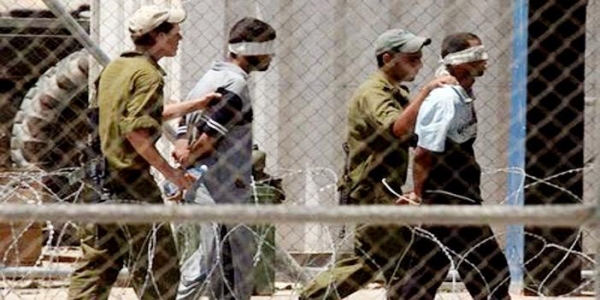
الموقع الاخباري الرسمي لمنظمة التحرير الفلسطينية
Intimidation, intense beat and medical ignorance practiced against detainees held in Negev prison to discourage meeting attorneys
May 27, 2024
The attorney of the Commission of Detainees’ Affairs stated, after visiting Negev prison, that the prison’s administration intended to take detainees who are supposed to be visited to a courtyard away from surveillance cameras, handcuffed and blindfolded, where soldiers start to beat and curse them in order to prevent them from meeting the attorney and conveying what they are subjected to in terms of physical and psychological abuse, that exceeded all limits since October 7.
This what both detainees Musa Aqel, 39, from Qalqilia and Majid Jarrad ,45, from Toulkarem have confirmed, as they were taken out of their rooms on the visit day at 6:00 am. The guard intended to tighten the handcuffs painfully, put them in a courtyard and attacked them with intense beat. It is worth noting that detainees used to be beaten after the attorney’s visit not before, but lately and due to the absence of accountability, detainees have become vulnerable to punishment and abuse at any time without any justification.
In a related context, retaliatory procedures and sanctions are still imposed on detainees as the following:
1. Wide spread of skin diseases among detainees
2. detainees are subjected to random beat much more than before
3. going to the courtyard of the prison is for one hour, and there is a white line that if they crossed it the break will be cancelled
4. Many detainees can only bathe once every two weeks
5. Food is extremely poor, as the meals provided for one week barely suffice for one day. Monday is considered a special day, as detainees receive three tablespoons of Hummos, four tablespoons of chickpeas and two pieces of falafel for each detainee
Regarding the constant use of medical ignorance policy in Negev prison, the commission’s attorney reviews two cases:
Detainee Jihad Nassar, 26, from Qalandia refugee camp: he suffers from a complex and serious skin disease, as his dry body is covered with spots, redness and infections that cause severe pain. He suffers from severe pain and unable to move normally especially in his limbs. He also does eat nor bathe, and no treatment has been provided, noting that his disease continues to spread.
Detainee Yaqoub Ashkar, 34, from Askar refugee camp, works as an officer in the Palestinian Intelligence Service: he suffers from problems in his colon and nerves, and needs a special type of medicine. However, the prison’s administration refused to provide the appropriate medication, giving himineffective alternative, which led to a state of health instability.